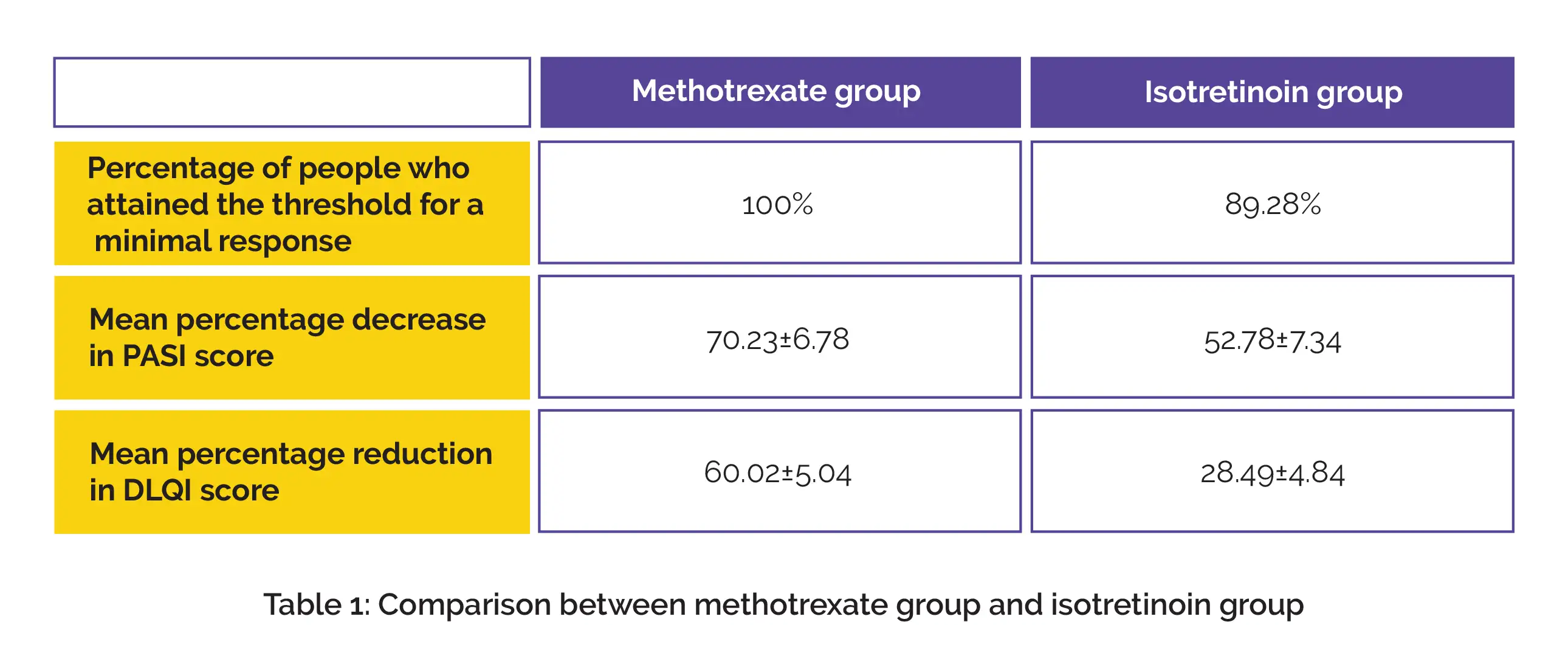Categories
Change Password!
Reset Password!


Compared to isotretinoin, methotrexate results in faster disease remission and better improvement in quality of life in patients with psoriasis.
A prospective cohort study published in the Asian Journal of Medical Sciences depicted that oral methotrexate is more effective when compared to oral isotretinoin in disease remission and enhancing the quality of life in people with mild to moderate psoriasis. However, compared to methotrexate, isotretinoin is safer. Researchers undertook this study to compare effectiveness and safety of isotretinoin and methotrexate for psoriasis management.
Overall, 60 participants (aged 18 years and above) suffering from plaque psoriasis were randomized to get either methotrexate or isotretinoin (30 participants in each group). Using the Psoriasis area severity index (PASI) score, improvement in disease severity was assessed while using the dermatology life quality index (DLQI) score, the patient's quality of life was evaluated. For safety assessment, various laboratory parameters and patient-reported adverse effects were examined.
A total of 58 subjects finished the study (30 subjects from the isotretinoin group, 28 subjects from the methotrexate group). Both methotrexate and isotretinoin were effective for psoriasis management. Compared to the isotretinoin group, a greater percentage of people in the methotrexate group had achieved the threshold for a minimal response (25% decrease from baseline PASI score following 12 weeks of therapy).
At the end of 12 weeks of therapy, the mean percentage reduction in PASI score and DLQI score was significantly higher in the methotrexate group vs. isotretinoin group, as shown in Table 1:

Regarding improvement in patients' quality of life, methotrexate was highly efficacious. In the isotretinoin group, fewer patient-reported adverse effects and reduced fluctuation of lab parameters were witnessed. Hence, compared to isotretinoin, methotrexate demonstrated superior efficacy for the management of plaque psoriasis.
Asian Journal of Medical Sciences
Suhrita Paul et al.
Comments (0)